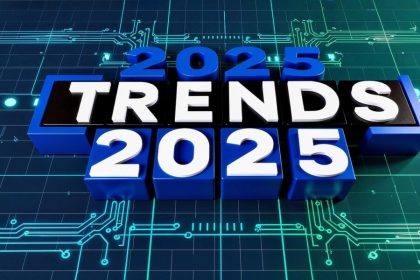If we’re not already in a recession, we may soon enter one due to aggressive trade policies that are fueling tremendous uncertainty. As companies and consumers pull back on spending, millions of jobs could be lost, trillions in stock market wealth may disappear, and inflation could persist—potentially ushering in a stagflationary environment.
If you’ve been thinking about retiring early in this environment, you might be hesitant to give up your steady W-2 paycheck. I completely understand. Your investments have already given up some gains, and you’re fearful we may retest the lows or worse. Our politicians, most of whom are extremely wealthy, can endure financial losses to pursue their ideologies far better than the average person.
Given the rising risk of a recession, I wanted to share my perspective since leaving the traditional workforce in 2012. You could argue we’ve already experienced two recessions since then—one in 2020 and another in 2022. The truth is, whenever the stock market drops significantly, it can feel like a recession, as fear and uncertainty take hold. The other truth is that a recession can be over before you know it.
Let’s explore how early retirees tend to feel during recessions and how they cope. I’ll also share some of my personal thoughts and actions. For context, I began writing about FIRE (Financial Independence, Retire Early) in 2009—during the depths of the worst recession of our lifetimes—as I searched for a way out.

1) You Worry That Early Retirement May Not Be Sustainable
Without steady paychecks, early retirees rely heavily on their investments to survive. So when a bear market wipes out 20% or more of a retiree’s stock portfolio, the fear becomes palpable.
The first step in a downturn is to lower your safe withdrawal rate to help preserve capital. The second step is to cut spending to align with the new lower withdrawal rate. And the third is to try and earn supplemental income, ideally doing something enjoyable.
Every retiree fears having to go back to work, often due to pride. They worry others will view them as failures, especially those who scoffed at early retirement in the first place. But in my view, trying something audacious and risky isn’t failure, it’s positive exploration.
It takes discipline to save aggressively and invest consistently for years. And that same mindset helps early retirees survive recessions. If needed, they’ll eat rice and beans, and find ways to earn to make ends meet.
My Personal Fear During the Pandemic Crash
My fear peaked in March 2020, when the S&P 500 dropped 32%. I had a three-month-old daughter and an almost-three-year-old son to care for. We pulled our son from preschool for 18 months and leaned heavily on grocery and food delivery services for months for the rest of the year.
I seriously considered getting a full-time job to boost liquidity. But with hiring freezes and lockdowns, that wasn’t an option. All I could do was reduce spending and keep writing. Luckily, at the end of 2019, I was offered a book contract by Portfolio Penguin to write Buy This Not That. Writing became my salvation as I had something professionally to focus on for the next two years.
Ironically, that recession turned into an unexpected tailwind. Traffic and revenue on Financial Samurai grew as more people searched for financial help while working from home. The value of online businesses rose because they couldn’t be shut down by the government. This was a classic example of the benefits of diversification and persistence. Sooner or later, something unexpected happens—good or bad.
2) You’ll Feel Both Relief and Anxiety
One of the biggest mental challenges for early retirees is staying retired during a bull market. When everyone around you is getting rich at work or launching startups, FOMO hits hard.
But during a recession, that pressure fades. Instead, you may feel a quiet relief that you’re not missing out as much. You might even feel a bit smug that others are grinding away for little reward, especially when share prices are dropping and business growth slows.
If you care about your Return on Effort, the best time to do less is during a recession. Conversely, the best time to hustle is during a bull market.
Of course, that relief can be overshadowed by anxiety if your portfolio takes a big hit. Even if you’ve got enough, watching years of gains disappear in months is never easy. Please focus on having the appropriate stock exposure that matches your goals and risk tolerance.

My FOMO and Relief
Living in San Francisco, my biggest FOMO these days is missing out on the AI boom. Many AI workers my age are landing multi-million dollar pay packages as companies like OpenAI, Anthropic, and others raise massive sums of capital. To stay competitive, giants like Google and Meta are boosting compensation too.
What keeps me grounded is the reality that I probably wouldn’t be able to land a job at one of these tech companies anyway. As consolidation, I’ve invested around $500,000 across various funds focused on private AI companies to gain exposure. Plus, owning San Francisco real estate is another way I’m positioned for potential liquidity events tied to the AI industry.
So on one hand, I do envy those holding plum 7-figure roles in AI. On the other hand, I once consulted at a startup and only lasted four months because I disliked the commute and endless meetings.
Below is my Fundrise Venture Capital dashboard, where I first invested $153,000 in 2024. I plan to invest another $50,000 this summer and then reassess every year. The more I invest in AI companies, the less FOMO I feel.

3) It’s Hard To Do Nothing And Take A Beating
Given how much effort it takes to retire early, it’s hard to sit still while your net worth is declining during a stock market crash. Many early retirees look for ways to earn income doing work they enjoy, both for financial and psychological security.
Personally, I try everything I can to prevent our net worth from going down during tough times. After all, the first rule of financial independence is: don’t lose money!
That said, this defiant mindset can hurt your well-being. Instead of letting go, you often become more stressed during a recession, checking your portfolio constantly and trying to hedge downside risk by sometimes selling or shorting at bad times. If you were truly content with your finances, you wouldn’t feel so pressured.
This is why it’s so important to review your worst-case retirement scenarios. You can create various retirement scenarios with Boldin or ProjectionLab. I use both and they are excellent retirement planning tools.
4) You’ll Find More People to Play With
The earlier you retire, the harder it is to find playmates. When I left work at 34, I had trouble finding tennis partners in the middle of the day. Eventually, I started hitting with a 55-year-old retiree and a college buddy who worked remotely.
But during a recession, that changes. Layoffs increase, and some of your working friends may suddenly have more free time. Your social life may ironically improve as a result.
On the flip side, if the recession is deep, too many layoffs can lead to crowding. Public facilities and courts may be busier than usual. Even private clubs can feel packed given wealthy members can ride out the downturn easier.
If you had a choice, as an early retiree, you’d rather have more people working in order to have more freedom during the day. The people taking up the pickleball court while “working from home” can create envy, making you wonder whether you should do the same.

5) You’ll be Reminded That Freedom is the Ultimate Goal
Recessions can create doubt, especially when your wealth drops and fear creeps in. But amid the volatility, you’re reminded of why you chose to FIRE in the first place—freedom. Freedom to be with your family, wake up without an alarm, be a full-time parent, travel, and pursue your interests on your terms.
Even if your net worth drops by 20% or more, your time is still yours. In a downturn, when stress levels rise across the workforce, the intangible value of freedom becomes even more apparent. It becomes easier to endure financial loss when you still have control over your time and mental space.
I worked through the 2008–2009 Global Financial Crisis, and it was the most demoralizing period of my career. Every quarter brought another round of layoffs—people I knew and respected were suddenly gone.
Our compensation was slashed, and we had to work even harder, driven by the fear of losing our jobs. For two years straight, walking into the office felt like walking on pins and needles. We never knew if that day would be our last.
Looking back, I’d much rather be retired during a recession than working through one.
6) You’ll realize you’re more adaptable than you thought
Recessions force creativity for survival. Whether it’s renting out a spare room, selling unused items, taking on consulting work, driving for Uber, or monetizing a hobby, early retirees often find that they’re more resourceful than they imagined.
You already beat the odds by retiring before 65. So you likely have the mindset, discipline, and tools to adapt—maybe even thrive—when circumstances change. And sometimes, you stumble across new opportunities that bring income and joy.
Financial Samurai would not have launched in July 2009 if it wasn’t for the global financial crisis.I would have kept putting it off because the financial rewards from work were too good to walk away from. But the trade-off would have been poorer health, more stress, and less overall happiness. I’m also not sure I would have had children, as I was too focused on work to even consider starting a family.
One of the best reasons to retire early is the opportunity to experience greater happiness sooner. This sense of happiness—or perhaps more accurately, deep satisfaction—is priceless. Below is how I describe the happiness by age chart if you retire early.

7) You may question your identity and purpose
When the markets are down and anxiety is high, it’s common to reflect on your life choices—especially if much of your identity was tied to your career. Without the validation of a title, paycheck, or steady upward trajectory, a recession can amplify feelings of doubt.
In addition, if you’ve spent years focused on saving and investing to retire early, you might tie your self-worth more closely to your net worth than the average person. As a result, when a recession takes a toll on your wealth, you may feel more down than someone who isn’t as financially focused.
But this also presents a valuable opportunity: to redefine your identity beyond work and money. Whether it’s being a present parent, a community volunteer, a hobbyist-turned-creator, or simply a curious soul, you’ll be pushed to answer a deeper question: Who am I without my career and wealth? The earlier you answer this, the more fulfilled your early retirement will be, recession or not.
Too Much of My Self-Worth Is Tied Up in Money
With the latest downturn, I’ve felt more moody but less afraid. I’m less afraid thanks to a bigger financial buffer than I had in 2022, but more moody because I should’ve known better than to invest near top valuations.
As a personal finance writer, I can’t help but check the markets daily. I was playing tennis at 10:30 AM the other day and still found myself checking stock prices during changeovers—like an addict. Meanwhile, my relative gets to focus on her art and stay blissfully unaware of the volatility. I feel trapped by my obsession.
I need to diversify my interests, but I tend to go all-in on everything—writing, investing, poker, tennis, fatherhood. Maybe I should pivot Financial Samurai into a health and wellness site. Nah! Who needs washboard abs at 47?
8) You’ll Become a Mentor, Whether You Know It Or Not, Which Will Enrich Your Soul
During recessions, friends and former colleagues may reach out for financial advice, job leads, or just emotional support. You become a source of wisdom because you’ve already made the leap and survived market turbulence. Even if you’re not actively trying to lead, your actions and lifestyle become a guidepost for others trying to navigate uncertainty.
The more you share your story—both the wins and the losses—the more others benefit. And that can add a new layer of meaning to your retirement. In times of fear, being helpful can be healing.
One of the most rewarding parts of running this site since it began in July 2009 has been letting people know they’re not alone during tough times. There’s something powerful about recovering together. Sharing hardship strengthens our bonds and makes the journey more meaningful.
The Surprising Benefit of Personal Finance Consulting
One of the most unexpected joys of publicly sharing my personal finance consulting page has been connecting directly with Financial Samurai readers over video. Until this year, I’d never promoted the service—it’s not even listed on my homepage—because demand can be overwhelming.
That said, I’m currently running a special promotion through Friday, May 9, 2025. If you order 55 hard copies of my new book, Millionaire Milestones: Simple Steps to Seven Figures, you’ll receive a bulk purchase discount and a 41% discount on my standard consulting rate. Plus, you’ll get to keep all the books—perfect for gifting to friends, family, or colleagues.
Every conversation leaves me inspired. I’m blown away by the businesses you’ve built, the courage you’ve shown leaving jobs or difficult relationships, the discipline you’ve applied to saving and investing, and the thoughtfulness behind your financial goals. I also have deep empathy for the challenge of building wealth while raising children. Talking with readers is the “last mile” that reminds me my writing might actually be helping someone.
So thank you to everyone who’s signed up already. For those interested in personalized feedback, you can just fill out the bottom of this form and I’ll get in contact within 48 hours with instructions. I look forward to speaking with many more of you.
Thankfully, Recessions Don’t Last Forever
Although early retirees are typically well-prepared for a recession, fear and anxiety don’t magically disappear after leaving the workforce. This is especially true if you have little ones depending on you as DUPs. The stress can be immense.
But here’s the good news: recessions don’t last forever. Historically, they’ve ranged from six months to two years, with an average length of about 10 months since World War II.
For the seasoned early retiree, surviving a two-year downturn is manageable because you’ve already planned your finances until you die.
So if you’ve stress-tested your retirement plan and it still holds up under a worst-case scenario, retiring during a bear market might actually be the ideal time. Why? Because after the storm passes—as it always does—the economy and your investments are likely to recover, making it that much easier to stay retired for good.
So now you have a sense of how you might feel and respond if you retire early and a recession hits. The final question is: will you find the courage to make the leap if you truly have enough money to live freely?
If you’re a retiree, I’d love to hear how recessions have impacted your finances, lifestyle, and mental well-being. Do you find it harder to navigate a downturn as a retiree or as someone still in the workforce? And when the economy takes a hit, what kinds of adjustments—if any—do you make to stay on track?
Order My New Book: Millionaire Milestones
If you want to retire earlier, grab a copy of my new book: Millionaire Milestones: Simple Steps to Seven Figures. I’ve distilled over 30 years of experience into a practical guide to help you become a millionaire—or even a multi-millionaire. With enough wealth, you can buy back your time, the most valuable asset of all.

Pick up a copy on sale at Amazon or wherever you enjoy buying books. Most people don’t take the time to read personal finance articles—let alone books about building financial freedom. By simply reading, you’re already gaining a major advantage.
Financial Samurai began in 2009 and is one of the leading independently-owned personal finance sites today. Since its inception, over 100 million people have visited Financial Samurai to gain financial freedom sooner. Sign up for my free weekly newsletter here.







